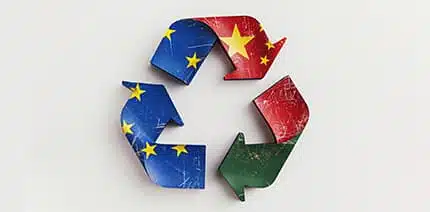The Ministry of the Environment (MASE) is set to embark on a series of consultations starting in April, involving stakeholders across the automotive supply chain to formulate a unified stance for negotiations on the proposed EU regulation concerning end-of-life vehicles. This initiative, announced during the ‘Impianti Aperti on The Road 2024’ conference by Assoambiente, marks a pivotal step towards enhancing sustainability and circularity within the automotive sector. As discussions unfold, divergent perspectives on aspects like extended producer responsibility underscore the complexity of the regulatory landscape. This article delves into the intricacies of the proposed regulation, the evolving dynamics between stakeholders, and the imperative of finding common ground to shape a resilient and forward-looking framework for end-of-life vehicle management.

From next April, the Ministry of the Environment will start consultations with companies in the automotive supply chain – from car manufacturers to dismantlers and crushers – with the aim of defining a shared position to bring to the negotiations on the new European regulation for end-of-life vehicles. This was announced by the deputy minister Vannia Gava and the general director of circular economy Silvia Grandi on the occasion of a conference organized by Assoambiente in the TECHEMET Italia catalyst recycling plant in Ciriè, in the province of Turin, with the media partnership of Ricicla.tv. “Starting from April 2024, we will start the call consultations with stakeholders with a transparent and participatory process,” said Grandi, recalling that the work on the text presented in July 2023 by the European Commission is, in fact, still in a startup phase. “We have held an initial institutional discussion with ISPRA – added Vannia Gava – but we will continue to work with stakeholders to make an assessment of not only environmental but also economic sustainability. The objective is to collect the operators’ requests to bring a shared proposal to Brussels.”
The new regulation on end-of-life vehicles, which will not be approved before 2025, will replace the current directive with measures that will intervene in all phases of the value chain with the aim of increasing sustainability and circularity of the automotive sector. “It is a very complex proposal”, explained the president of ADA, Anselmo Calò, according to whom “there are measures on which all operators have already agreed”. Such as the regulation of vehicle exports or greater traceability of components sold as spare parts. On other passages, however, the judgment remains critical. “We have a problem of definitions – clarified Cinzia Vezzosi, vice president of EuRIC – in the regulation we speak generically of treatment centres, when instead the central role should be brought back to car dismantlers, the second critical element is the dismantling obligations for components that do not have a market, and the third is represented by the strengthening of the EPR, the extended producer responsibility regime”.
If there is already convergence between car manufacturers and recycling plants on the ‘no’ to dismantling obligations, as well as to the establishment of temporary collection centres, the positions on extended producer responsibility are still distant. The proposal formulated by the Commission, in fact, will give car manufacturers a central role also in the management of the end-of-life of vehicles, shifting the responsibility for achieving the binding objective of 85% recycling and reuse of vehicles to the manufacturers. And also assigning them the task of covering the costs of treating the vehicles in the portion not compensated by the sale of recycled materials and spare parts. A measure which, if not calibrated well, recyclers warn, could have disruptive effects on the operations of the over 1,500 Italian demolition and crushing companies.
“The EPR must aim to reduce waste to a minimum, as well as the carbon footprint and the environmental impact of the treatment – said Vezzosi – this is its deepest meaning, and this is what we want it to remain. If we leave room for models that instead pursue ‘business profit’, we enter a dangerous dimension.” This would jeopardize the economic sustainability of companies that currently work in a free market regime by supporting their activities with the sale of spare parts and recycling materials and which, in 2022 alone, processed 1.4 million tons of decommissioned vehicles reusing its components or recycling 85% of them. On the occasion of the Ciriè meeting, the car manufacturers showed full willingness to engage in dialogue. “We are aware of the results obtained so far in synergy with the demolition and crusher supply chain, and we would like this to continue – clarified the deputy director general of UNRAE, Antonio Cernicchiaro – we do not pretend to take on this new responsibility with the aim of making it a business. But we also don’t want to bear the cost of any inefficiencies in the system. Instead, we want to continue, together with demolitors and crushers, to promote the quality and professionalism of operators.”
The EPR regime will have to guarantee the achievement of the 85% recycling and reuse target, to which Italy is substantially aligned, but if built by balancing all the interests at stake, it will also be able to contribute to unblocking the path towards the 95% objective of overall recovery, from which we remain distant due to the stalemate on the energy recovery of ‘car fluff’, the heterogeneous residue from the crushing of vehicles. Throughout Europe, it is used as a fuel for the production of heat and energy, and in Italy, however, it ends up almost exclusively in landfills. “It is a purely economic issue, not a technological one”, explained the president of AIRA, Stefano Leoni. Given that the Italian energy recovery market is particularly ‘short’, i.e. with little space in the plants compared to the actual availability of combustible waste, incinerating the fluff or transforming it into CSS today costs much more than disposing of it in landfill. And since, at the moment, the costs are covered only by the crushing operators, it goes without saying that the cheapest solution continues to be preferred. “It is right that these costs are also supported by the producers – said Leoni – as the proposed regulation provides”.
“There are passages of the proposed regulation on which it is necessary to find a meeting point – underlined Calò – in particular on the EPR, with respect to which the starting positions are not unambiguous. I believe that the government can act as a conciliator to arrive at a position shared by the entire Italian supply chain to bring to Brussels”. As Spain and Portugal are already doing. And as according to the guarantees offered by MASE during the debate between operators in the sector, Italy also seems ready to do so. Ciriè was the first stage of ‘Impianti Aperti on The Road 2024’, the new edition of Assoambiente’s awareness campaign, which since 2019 has opened the doors of national circular economy factories to the general public. With the aim of overturning fears, prejudices and nimby syndromes. “We are succeeding a little – said the president of Assoambiente Chicco Testa – by involving school groups and citizens in visiting plants like the Techemet one, with advanced technologies and processes”. “It is essential to make the general public aware of the efforts that companies make to improve the performance of the national circular economy” explained the president of Techemet Europa Giovanni Greco. “This year, the campaign has obtained the patronage of the Ministry of the Environment and ANCI, as in previous years also of ISPRA SNPA, and of Sustainability in Lombardy – recalled the general director of Assoambiente Elisabetta Perrotta – – to signify the importance of bringing citizens and institutions ever closer to these realities”.
Source www.riciclanews.it











